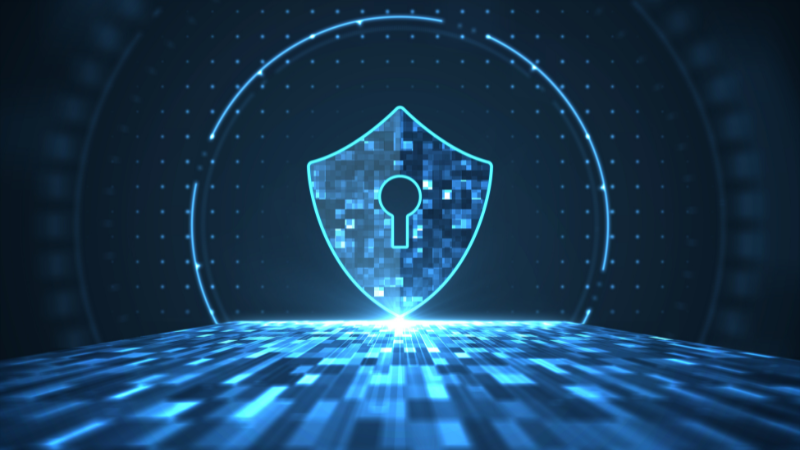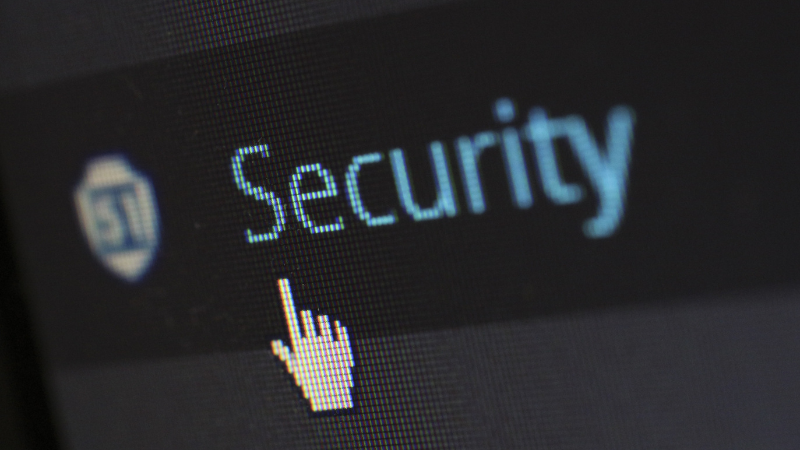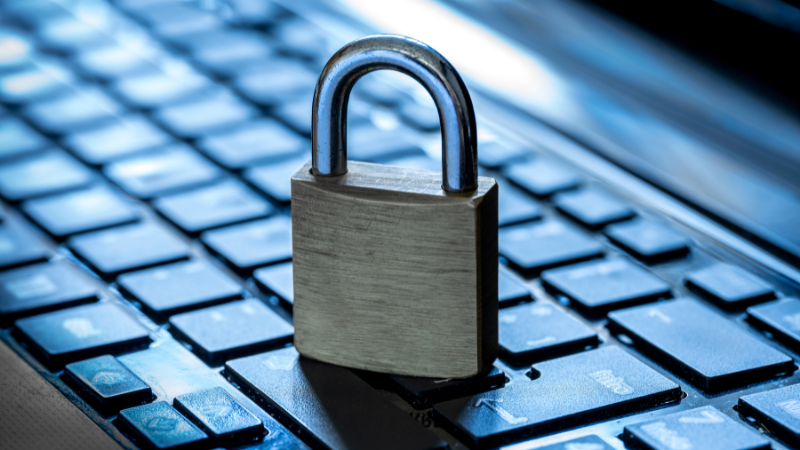Welcome to the digital frontier where the quest for cybersecurity never sleeps. If you’ve ever found yourself wondering about the mysteries lurking in the corners of the web or how to shield your digital life from prying eyes, you’re not alone. Here at Digital Desperados, we’re all about diving into the untold stories of the web, served with a side of savvy tech insights and a dash of humor.
Before we unspool today’s tale of cyber intrigue, let’s talk about staying secure in a world that’s increasingly online. Whether you’re a family man trying to safeguard your kids’ online adventures, a small business owner guarding precious data, or just someone who likes to keep their digital footprint neat and untraceable, the Best VPN Service out there isn’t just a nice-to-have—it’s a necessity.
That’s where SaferNet comes in, your ally in the fight against cyber threats. With SaferNet’s VPN, you’re not just getting another layer of encryption—you’re enrolling in a complete cybersecurity program. Think of it as the digital equivalent of a Swiss Army knife: it’s versatile, reliable, and always ready to protect you from the unseen dangers of the internet.
So, as we gear up to explore the shadowy world of Gary McKinnon—Solo, the infamous NASA Hacker—let’s not forget that the web’s wild west days are far from over. But fear not, with services like SaferNet, you can roam the digital plains with the confidence of a sheriff in a lawless town.
Now, grab your virtual hats and join us as we unravel the enigma of a man who looked beyond the stars and left the world’s superpowers grappling with ghosts in their machines. This is the Digital Desperados Podcast and we’re ready to take you on a journey through the darkest alleys of the internet—safely, of course, thanks to the Best VPN Service you could ask for. Let’s get started.
Jim: Hey, welcome to the Digital Desperados Podcast, featuring dark tales from the web. Patrick McMurphy is here today once again to tell us our dark tales. He’s joined by Brad Hawkins, founder of and CEO of SaferNet. SaferNet, VPN online at SaferNet.com.. I’m Jim Brangenberg And I’ll, serve as your story guide, and of course, our podcast is brought to you by SaferNet.
They’re bringing the best stories for us to hear. You know, anywhere going online can be scary every time you click on a cotton picking link. You just don’t know where you’re going. Join the mission to stay secure online with SaferNet VPN. Perfect for small to medium sized businesses and families. Ah, the cybersecurity app from SaferNet provides VPN, internet controls, virus protection, and web controls.
Work and family life can be in harmony with these. 84 filters keeping distractions away get secured now protect your family, protect your business, protect your office, protect your organization, protect your church, protect your local lions club, whatever it is, sign up at SaferNet. com. That’s SaferNet.
com. All right, Patrick McMurphy, who’s dark tail are you telling about? Tell us about today.
Patrick: Well, today’s episode is one that I’ve been looking forward to since we started because this guy is probably my favorite of the Digital Desperados. His name’s Gary McKinnon, also known as Solo or the NASA Hacker.
And so in previous episodes, you know, people have been motivated by finances, government pressure, or employment, or notoriety. Gary’s motivations were completely extraterrestrial. He was looking for evidence of aliens. So Gary, the NASA hacker, Solo, let’s call him Solo, he was born in Scotland in 1966. So a cousin of mine, really, in many ways.
In the early 70s, he moved to London with his mother and his stepfather. So his stepfather was a science fiction fan and had a keen interest in UFOs. As you can imagine, this rubbed off on Gary quite a lot, and he developed his own interest and obsession in UFOs. And so because him and his stepfather are, you know, they’re pretty close, they get on well they also developed this interest in household computing.
And so the stepfather buys a PC for their home when Gary’s aged 14. And so. Gary spends the next couple of years really just learning the ins and outs of computing around software around hardware He’s not as not as adept as Mafia boy, but he’s he’s pretty tech savvy. Around this time, there was a movie released called Wargames, I don’t know if you guys have seen that, and it was released in the early 80s.
Yeah, it’s brilliant, it’s brilliant, and it created a generation of hackers, including Gary, but when Gary saw that movie, it had a huge influence on him. the movie that gave him the first desire to become a hacker. And he’d also, just around this time, because of the movie, Bought a book called The Hacker’s Handbook by Hugo Cornwall.
This is kind of a now famous, old almost bible type book for hacking back in the day, which really kind of gave you a set defined path on how to, how to become a hacker. So despite, you know, these probably not so great aspirations he went on to earn an IT degree and actually worked several above the board jobs in the coming years.
Brad: I personally cannot believe that there’s a book teaching kids how to hack I mean, I, I, I shouldn’t be surprised at anything, but
Jim: They got books teaching kids to do all kinds of stuff today. It seems like one of the most harmless things that you can do is a hacker’s book. I
Patrick: was going to say, I was like, look, hacking at this point is pretty, you know, Pretty innocuous.
But so yeah, Gary, Gary’s working odd jobs, but what’s always at the back of Gary’s mind are two things. He wants to be a hacker. And where are the aliens? Because remember, he’s obsessed with UFOs. And so, he gets this idea from various kind of websites and different places that the USA is hiding information about UFOs and also possibly extraterrestrial weaponry.
So he kind of, he’s like, okay, I need, he just gets this idea. I need to hack the U. S. government, which is a big idea to have. It’s a pretty lofty ambition.
Brad: I, I get it. I thought you were going to say that he was thinking that the UFOs were hiding in the internet. But now, now I get it. Now I get it.
Patrick: I mean, they might be, honestly.
So Gary decides to, you know, start off with. So much smaller fish and by smaller fish I mean Oxford University in the UK. He decides he’s going to try to hack Oxford University. And so what he does is that he scans the ports around Oxford University and finds that they lead to a lot of computers that just do not have any passwords whatsoever associated to them.
So what he does is that he devises a strategy. And so the Gary McKinnon strategy is a three stage attack. And he… Kind of becomes a bit famous for it. But in the first stage, all he does is that he scans to identify any computer on a network that’s Microsoft Windows. Then in the second stage, he scans to see is there open communication.
And then on the third stage, he would look for systems that communicate with him that don’t have any password. And as it turns out…
Jim: What do you mean by open…
Brad: Yeah, go ahead. What do you mean by open communication?
Patrick: That they’re not closed off as in that they have an ex like, you know There may be internal computers within like a university are gonna have internal computers within a network Okay, it’s gonna be computers like facing out into the
Jim: it’s a port thing, too I mean if you look at how computers are set up they have ports on how you get access to the the you know The LPT one port was for your old LPT computers and now that the ports are available for assigning extra external devices to them.
I mean, the port is the communication. There’s communication ports, multiple communication ports within any computer. What I love about the fact is he said, yeah, I’m not going to worry about the Apple computers cause those are too hard. Let me just find some window windows computers because that’s so much easier.
I also noticed that he didn’t say I’m looking for Linux computers or Unix operating system computers. No, just windows computers because that’s such great software. I can hack into that. I love it. And that’s, that’s what’s sad about our world. That’s why you need SaferNet VPN because every time you go online, your heart and your soul are under attack and so was your computer.
You got to secure your computer, you got to secure your workplace, your family place with SaferNet. Simplified cyber security for businesses and families. They got. A VPN, which we will have Brad describe that on one of these episodes. What is a VPN anyway? Internet controls, virus protection, website filters, get secured.
Now stop trying to think you could do it with windows security security because that’s what the cyber security criminals are looking for is windows. SaferNet. com. That’s SaferNet. com. All right, Patrick, you just told us the most disconcerting thing and he was running windows computers. That’s what hackers are looking for.
Patrick: Yeah, yeah. And the thing is that the majority of computers that Gary looked at, they all had no password. And so… In terms from the network side. And so he made use of a legitimate program called remote, remote anywhere, which allows someone to remotely access a computer now that just, and so he uses that
Jim: just so you know, PC anywhere and remote anywhere.
Literally it just, once you were connected to a computer, you could control that computer from anywhere in the world. ’cause I used that software and it had no security features at all, .
Patrick: And so really what Gary is doing. This actually isn’t complex hacking by any means, this isn’t your game over Zeus, bank in Trojan, deploy Cryptolocker.
It’s very simplistic, but that’s, it’s so effective, that’s what kind of makes it genius. It’s simple stuff, but all the doors are open to them. So if it works, it works. And so this, Gary employs a strategy over the next 13 months, all done from a couch in his girlfriend’s living room using a 56K dial up modem.
His main objective over these 13 months is to find evidence of UFOs, free energy technologies, and technologies that are potentially being kept hidden from the public by the USA. So, in these 13 months, Gary uses the three stage strategy. And he hacks into NASA, U. S. Army, U. S. Navy, the Air Force, and the Department of Defense, all successively.
Brad: Oh my god, with the simplest technology?
Patrick: Yeah, with the most simple method he could devise. And so this period is later called the biggest military computer hack of all time, which it was. Wow. And so Gary was kind of playful. He would leave calling cards on systems, just kind of messages, mocking system this admins as in system administrators, calling them out for bad security.
He also signed his name as Solo. Which is more than likely a Star Wars tribute because we know he was a sight point nerd and he liked aliens. So, and this is where Gary begins to find what he’s looking for. Now, when I was writing these notes, I was like, am I going to go deeply into what Gary found? Or are we going to, like, we’re going to become InfoWars real quick if I get deep into this.
So I won’t go too deep into what, into what Gary found, but and I’m unsure how much,
Brad: did he find evidence of Martians on NASA’s computer?
Patrick: Well, given what, what the Pentagon findings have revealed in the last 12 months or so, I’ll, I’ll, I’ll let you jub, judge. When he claims to, he claims to have found object of UFOs, he said he’s found satellite imagery of unknown objects, which he calls silvery cigar shaped objects with geo, geodesic spheres on either side.
He found all these images. Now, here’s the, here’s the kicker. He said he couldn’t download them due to the file size. On a 56k modem and as someone who’s grown up with a 56k modem, completely understand Gary. Totally get that, oh yeah. Now entering more probably into the realm of science fiction, Gary claims to have found Excel spreadsheets named non terrestrial officers.
Which he claims lists US Air Force staff who are not born on Earth. But you know, you can take that or leave it. Now the thing was, Gary was really damaging a lot of the computers at the time, and this was right after 9 11 as well, which is not a great time to be making military attacks in the U. S.
A lot of the systems were crashed, he would delete, like, operating system critical files. There was 2, 000 computers across the board shut down entirely, I mean, 2, 000 within those government bodies we spoke of. The U. S. later claimed… It was a million dollars in damages. I feel that’s probably, that’s probably higher.
Brad: Now, what was, what was his motivation? Do you know that would cause him to want to destroy or crash the computers that he just got into? What, what, what was that to him?
Patrick: Probably just kind of a. I’ve been of an up yours to people for not telling the public about UFOs in his mind.
Brad: I understand. Now, Patrick, let me take you back. So he had a three stage approach to break into these computer systems. You know, breaking into the military computer systems with a, with a simple approach is just fascinating to me, but do you have any idea how he got in in the first place? I understand once he got in to be able to, to analyze whether or not they’re Windows computers or not, or, you know, but how did he actually get into it?
Do you know?
Patrick: As in, I mean, you can scan ports legitimately like right now, if you want, you know, it’s not. But as in to actually access them when he had scanned them he just checked for ones without passwords, which turned out to be most. Yeah, it’s, it’s, it’s, it’s so simplistic, it sounds silly, but that’s, that’s, that’s what security was like in 2004.
Brad: How, how critical is it to have a password, even if it’s a simple password, but to have a password on your computer?
Patrick: Yeah, yeah, on your network, at least, if you’re, you know. Especially if you work for the government and have evidence of UFOs in your computer.
Jim: Oh, if he could have only downloaded those files.
Patrick: Ah, look. Yeah.
Jim: I’d like to know if one of those military officers eventually got elected to office. Do you know what?
Patrick: It wouldn’t surprise me. It wouldn’t surprise Gary McKinnon either.
Jim: I want it noted I’m being quiet.
Patrick: Now, for all Gary’s deeds he really did not hide his tracks at all. He was tracked down nearly immediately and he was arrested by the national high
tech crime unit. Which are the UK authorities on the morning of March 19th, 2002. And so, Gary learns, if expedited, he faces 17, a 70 year long prison sentence in the U. S. Which is kind of understandable, you just hacked all of their government computers. And so we kind of get into the murky waters of geopolitical ramifications, everyone’s favorite subject at the moment. So the extradition, extradition. twice, went on actually for a decade. He was always using court hearings.
He was always appealing them in the late 2000s. He was actually diagnosed with Asperger’s syndrome. And so that really got the public onto it, especially the British public onto his side a lot. There was a belief he would be treated as a terrorist. He might face, you know, special administrative measures, which could lead to things like prolonged solitary confinement, but there was mass protests against Gary’s extradition, celebrities got involved.
I think, I think Floyd even recorded a song with Gary, I haven’t listened to it. It’s probably about aliens, to be fair. Could be like one of Bowie’s alien songs, you know, but so.
Brad: Now I’m just curious, is there a less charge or a less penalty for breaking into the military if they leave it wide open with no passwords?
Patrick: No, you just get 70 years.
Jim: And I just, for the audience listening and can’t understand Patrick’s accent, he’s not saying 17 years, he’s saying 7 0 years, 70 years, 70 years, that’s, that’s a lifetime.
Patrick: Yeah, it’s, it’s a very long death sentence is what it is. So yeah, in 2012, after seven years of legal battles, the UK Home Secretary, Theresa May, announced that MacKinnon’s extradition would be blocked, citing concerns about his mental health.
So that, that’s actually pretty unique in US UK relations who have always been close allies to get something like this blocked. And so Gary McKinnon, he was free, he is free. He should probably never, ever even think about looking toward the general direction of America. But he is free. He’s a system administrator.
He works in an SEO startup. And so, you know, we look at this story and I know it kind of sounds silly. It’s a guy looking for aliens. It sounds just kind of like a fun novel story, but his actions were highly influential, not just on government security, but security as a whole. Things like, things like employee
education, extra precautions being taken for privileged accounts, detection systems, all these things are implemented.
So much so, that Forbes put Gary in him, put Gary in the list of top 20 hackers who shaped cybersecurity landscape forever. So again, you know, look, we can look at Gary’s actions with, it’s a bit of entertainment value, but it’s, it’s important to keep in mind that if he did not carry out his search for extraterrestrial life, it’s very likely that another hacker would have come along with much more malicious intentions, reach those same US systems and could have done.
Who knows what. So, in a sense, I feel we, we also owe some debt of gratitude.
Jim: Thank you, sir. I’m sure he got a letter from the government thanking him for drawing attention to all of their deficiencies.
Patrick: Oh, yeah. I’m sure they were very gracious about it.
Jim: Imagine what they would pay today for that expertise.
Brad: I know, that’s the thing. He could consider himself a white hat hacker. Yeah. Although he did destroy the system while he was in there.
Patrick: Yeah, he probably should.
Brad: That might have, might have been a little bit of a…
Jim: If he had just left it alone, we might have been able to download those pictures. Once he got an upgrade, he could have got a 128, you know, K,
Patrick: Yeah, he could have come in a good faith, but, you know, he had to kick over the trash cans when he was there.
Jim: But how many of us have done that? You’re like, yeah. Well, I mean, I, I was just watching a, i, I was watching, I was reading a book where the villain every time left AAAA A signal where he was this like, I’ve been here, and he left a little.
I’m like, why do that? Just get outta there anonymously. Doesn’t make sense. Exactly.
Brad: I’d, I’d really like to see that spreadsheet, though. That’d be a lot of fun too. I don’t see all the yeah. Named or unnamed aliens that are, part of that.
Patrick: Yeah. I don’t know. He, he has actually, he has released a few of those names, by the way.
He did. He did download a lot of those Excel files. And when people have searched for the names, they do not show up anywhere as if they don’t exist. So make it that what you will.
Jim: But none of those names are released here on the digital Desperados podcast because Patrick’s afraid for his life.
Patrick: It’s the aliens.
Jim: Wow. you know, and in the last 12 months, honestly, I think Gary McKinnon. He’s been proven. I think he’s been exonerated a little bit a little they got video Yeah, you heard it here the internet and everything digital can have a dark side with many dark players like Gary McKinnon Or solo or the NASA hacker.
It’s why you need SaferNet by your side VPN just to keep your your where you are private and boy antivirus Web filters. Thanks so much to SaferNet for supporting our efforts to bring these stories to your ears and giving them the exposure that they need. And for your own security and the security of those you love and those you work with, check out SaferNet. com. Get secured today. It’s ridiculous if you don’t.
Till the next time, click only on the attachments that you trust and the links that you trust from those that you get emails from that you trust. And delete the rest. Clean out your trash can, reboot your computer, or you may become the next victim of a digital desperado.

And that, dear listeners, brings us to the end of another gripping episode of the Digital Desperados Podcast. Today, we’ve navigated through the labyrinthine saga of Gary McKinnon, Solo, who shook the world from a dial-up connection. It’s tales like these that remind us of the fragility of our online existence and the paramount importance of fortifying our digital defenses.
As we log off and unplug from this story, let’s carry with us the understanding that the internet—while a realm of infinite possibilities—is also a playground for the modern rogue. And in this playground, the best offense is a robust defense. Enter SaferNet, the Best VPN Service out there, designed to shield you from the cyber outlaws lurking in the shadows.
With SaferNet’s VPN, you’re not just browsing; you’re cloaking yourself in a mantle of invincibility that cyber threats can’t penetrate. Think of it as your personal digital guardian, standing vigilant between you and the chaotic churn of the world wide web.
So whether you’re a digital entrepreneur, a remote worker, or someone who values their online privacy, remember that securing your internet connection is not just about dodging digital desperados; it’s about ensuring peace of mind in a world that’s constantly connected.
Don’t wait until the next episode to take action. Head over to SaferNet.com and arm yourself with the Best VPN Service available. Secure your digital life and surf with confidence, knowing that SaferNet is your partner in this endless cyberspace odyssey.
Until next time, keep your passwords strong, your connections secure, and your spirits unbreakable. This has been the Digital Desperados Podcast, brought to you by SaferNet – your beacon of safety in the vast digital ocean. Stay safe, stay secure, and stay tuned.








